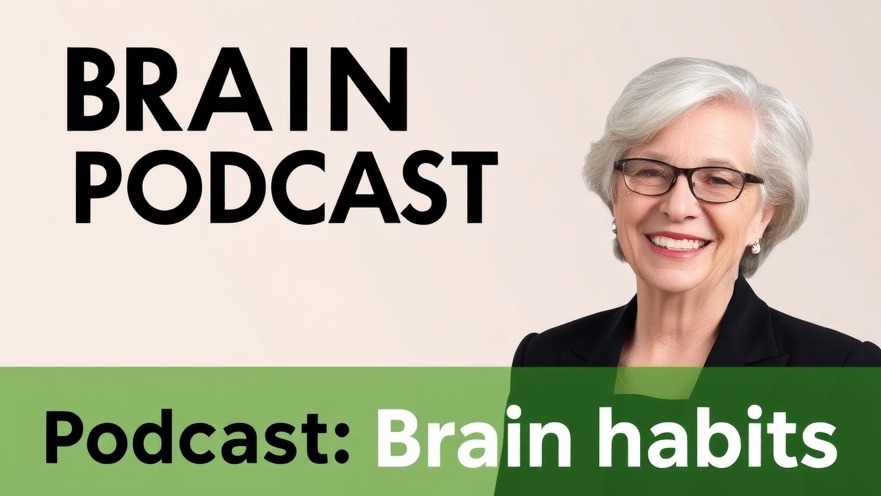
Understanding Cognitive Distortions: The Lies Our Brain Tells
Imagine this scenario: you send a friendly text to a close friend, and hours go by without a reply. The silence starts to spin your thoughts into a frenzy. Perhaps your friend is upset with you, or worse, maybe they don’t want to be friends anymore. Sound familiar? This is a common experience, but what’s happening is that your brain may be lying to you. This cognitive distortion can cause unnecessary anxiety and distress, altering your perception of reality.
In 'Cognitive Distortions: How to Stop Believing the Lies Your Brain Tells You,' we explore key insights about how our thoughts can mislead us, prompting a deeper analysis of coping strategies.
What Are Cognitive Distortions?
Cognitive distortions are biased thought patterns that negatively twist our interpretation of events. They often appear during stressful times, making us think in extremes or fill in gaps with our worst fears. For instance, a minor headache may snowball into thoughts of a serious illness, or your partner’s silence could mean they’re having second thoughts about the relationship. These thought patterns not only feel real, they can become dangerously entrenched if left unchecked.
How Your Brain Triggers Cognitive Distortions
Your brain is designed to keep you safe, often by looking for signs of danger to help you make quick judgments. The amygdala, the brain's alarm center, activates and skews your perspective, especially under stress. While this reaction is beneficial in actual danger, it can lead to an overreaction to mundane situations, such as missing a text from a friend.
Common Cognitive Distortions and Their Impact
Recognizing typical cognitive distortions is crucial for mental health, especially for seniors and middle-aged individuals who may be prone to anxiety or depression. Here are four frequent types:
1. Catastrophizing: This involves predicting the worst possible outcome in a situation, amplifying fears and worries unnecessarily.
2. All-or-Nothing Thinking: This black-and-white perspective ignores the gray areas, labeling situations as successes or failures without acknowledging any middle ground.
3. Mind Reading: Assuming you know what others are thinking can cause undue stress, leading you to believe they harbor negative thoughts about you.
4. Personalization: Taking personal responsibility for events outside your control leads to unnecessary guilt and anxiety.
Challenging and Rewiring Your Thoughts
Fortunately, we can learn to combat these cognitive distortions. One effective method is the Evidence Check technique. When a distressing thought strikes, pause and ask yourself: what evidence supports this thought? This self-questioning helps replace distorted thinking with rational clarity.
For example, if you fear your friend is upset due to their lack of response, consider the broader context. They may simply be busy. Acknowledging this can significantly ease your anxiety. The aim is not to ignore genuine concerns but rather to evaluate what is real versus imaginary.
The Role of Mindfulness in Recognition
Mindfulness plays a pivotal role in this process. By regularly practicing mindfulness techniques, such as meditation or deep breathing, you cultivate an awareness that allows you to pause and evaluate your thoughts without emotion clouding your judgment. This practice can diminish the impact of cognitive distortions and enhance your overall mental health.
Building Resilience Through Repetition
Just as cognitive distortions can strengthen through repeated thoughts, so can positive rewiring of your mind. By consistently applying the Evidence Check method and practicing mindfulness, you're gradually building new mental pathways that foster resilience.
Real-Life Applications and Benefits
Taking action on cognitive distortions has notable benefits for mental health. Embracing techniques like these not only reduces anxiety but enhances emotional well-being, allowing for a calmer approach to stressful situations. Engaging with supportive communities or therapy can further empower individuals to recognize and challenge their thought patterns.
Conclusion: Empowering Yourself Against Cognitive Distortions
The journey towards mental clarity and resilience is achievable. Remember, you can’t control every thought, but you can choose to challenge and reshape them. This week, experiment with the Evidence Check method and see how it transforms your thought patterns. It’s key to embrace your humanity throughout this process—beating yourself up for cognitive distortions will only reinforce them.
If you're looking for more mental health tips and techniques tailored for your well-being, consider incorporating mindfulness practices into your daily routine. Regular engagement can significantly enhance your mental resilience.
 Add Element
Add Element  Add Row
Add Row 



Write A Comment